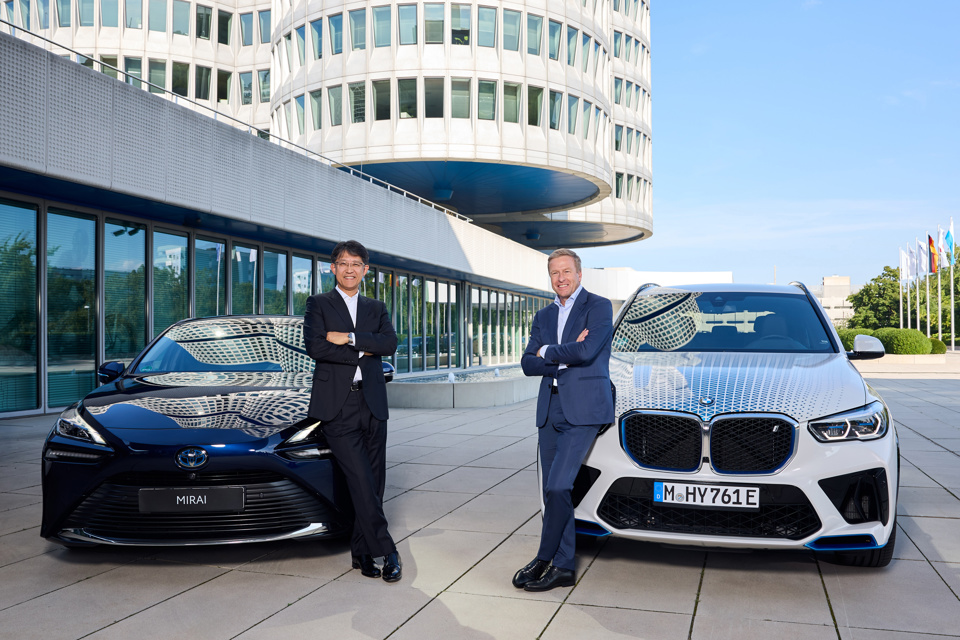BMW will introduce hydrogen powertrains to its model line-up in 2028, as part of a plan to offer multiple zero-emission options.
The hydrogen fuel cell powertrain technology will be integrated into existing BMW models, complementing the existing electric, plug-in hybrid and internal combustion options.
BMW will jointly develop the new powertrain with Toyota, following more than a decade of collaboration on hydrogen systems.
Oliver Zipse, chairman of the Board of Management of BMW AG, said: “This is a milestone in automotive history: the first-ever series production fuel cell vehicle to be offered by a global premium manufacturer.
"Powered by hydrogen and driven by the spirit of our cooperation, it will underscore how technological progress is shaping future mobility and it will herald an era of significant demand for fuel cell electric vehicles.”
After successfully testing the BMW iX5 Hydrogen pilot fleet worldwide, BMW is now preparing for series production of vehicles with hydrogen drive systems in 2028 on the basis of the jointly developed next-generation powertrain technology.
The pathway to realising the full potential of hydrogen mobility includes its use in commercial vehicles and the establishment of a refuelling infrastructure for all mobility applications, including hydrogen-powered passenger vehicles.
Recognising the complementary nature of these technologies, the BMW Group and the Toyota Motor Corporation are supporting the expansion of both hydrogen refuelling and battery electric vehicle charging infrastructure. Both companies are encouraging sustainable hydrogen supply by creating demand, working closely with companies that are building low-carbon hydrogen production, distribution, and refuelling facilities.
Koji Sato, president and member of the Board of Management (Representative Director) Toyota Motor Corporation, said: “We are pleased that the collaboration between BMW and Toyota has entered a new stage. In our long history of partnership, we have confirmed that BMW and Toyota share the same passion for cars and belief in ‘technology openness’ and a ‘multi-pathway’ approach to carbon neutrality.
"Based on these shared values, we will deepen our collaboration in efforts such as the joint development of next-generation fuel cell systems and the expansion of infrastructure, aiming for the realization of a hydrogen society. We will accelerate our efforts together with BMW and partners across various industries to realize a future where hydrogen energy supports society."
The BMW and Toyota hydrogen models will maintain their distinct brand identities and characteristics, providing customers with individual options to choose from.




















Login to comment
Comments
No comments have been made yet.